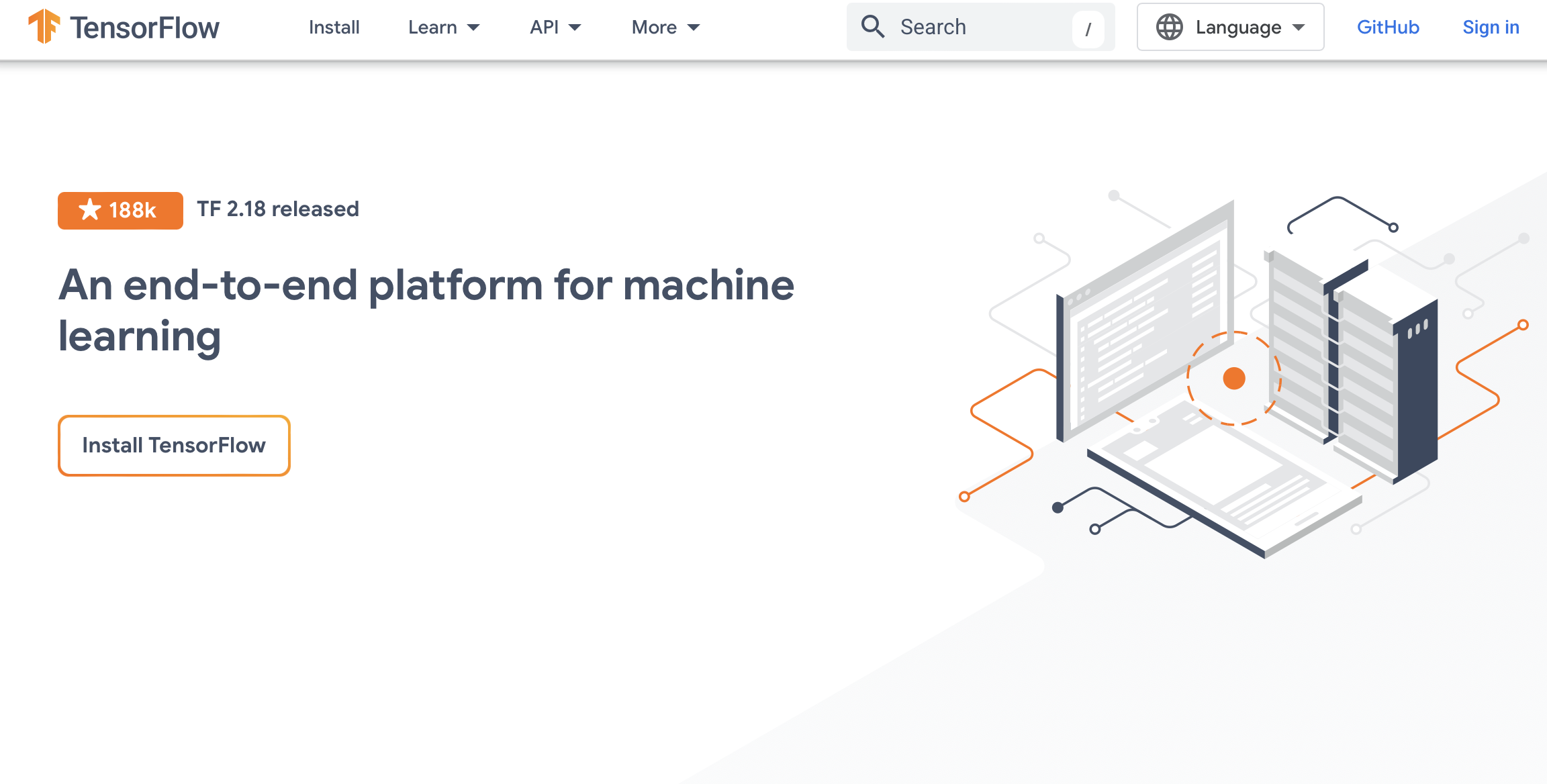What is TensorFlow? Everything we know about Google's AI framework
Google has a powerful, open source machine learning framework to help build and train AI models

TensorFlow is an open source machine learning framework developed by Google, designed to build and train AI models for a wide range of applications.
The tool is widely used in industries such as health care, finance, and automation, offering powerful building blocks for deep learning and neural networks.
With its flexibility, scalability, and extensive library support, TensorFlow remains one of the most popular frameworks for AI development. Whether you’re a researcher or a business deploying AI at scale, TensorFlow is a solid foundation for innovation.
This article was correct as of February 2025. AI tools are updated regularly and it is possible that some features have changed since this article was written. Some features may also only be available in certain countries.
- Try out TensorFlow
- The best AI tools around – ChatGPT, DeepL, Midjourney, and more
What is TensorFlow?
TensorFlow is an open-source machine learning and deep learning framework created by Google Brain in 2015.
It provides a flexible and efficient ecosystem for building and training AI models, particularly for tasks involving neural networks. The framework is written primarily in Python and C++, offering support for multiple programming languages and hardware platforms, including GPUs and TPUs.
TensorFlow helps developers create models for image recognition, natural language processing (NLP), and even robotics, and offers pre-built components such as TensorFlow Lite for mobile apps and TensorFlow.js for browser tasks.
Are you a pro? Subscribe to our newsletter
Sign up to the TechRadar Pro newsletter to get all the top news, opinion, features and guidance your business needs to succeed!
TensorFlow 2.0, released in 2019, introduced improved usability, eager execution, and tighter integration with Keras, making it more accessible for AI researchers and developers.
Its extensive community and strong backing by Google, a company unlikely to go out of business, make it a leading tool for AI innovation.

What can you use TensorFlow for?
TensorFlow is used for a variety of AI and machine learning applications, ranging from deep learning research to real-world deployment.
Developers can use it to train neural networks for speech recognition, text analysis, and self-driving tech, and the framework’s scalability allows it to run on mobile devices and large cloud deployments.
TensorFlow.js enables AI models to run directly in web browsers, making it accessible for web developers. With a vast suite of tools and a strong open source community, TensorFlow remains essential for AI research and industry applications worldwide.
What can’t you use TensorFlow for?
While TensorFlow is powerful, it is not the best choice for every AI-related task: it's complex for beginners and requires programming knowledge, making it less suitable for those looking for a simple drag-and-drop AI builder.
TensorFlow is also not ideal for lightweight machine learning applications where simpler frameworks like Scikit-learn may be more efficient.
Additionally, while TensorFlow can be used for reinforcement learning, specialized frameworks like OpenAI Gym are often better suited for those tasks.
How much does TensorFlow cost?
TensorFlow is completely free and open source under the Apache 2.0 license, meaning individuals and businesses can use it without any cost. The software can be downloaded and installed on local machines, cloud environments, or edge devices.
However, deploying TensorFlow models at scale often requires cloud computing resources, such as Google Cloud AI Platform or AWS, which come with associated costs.
Where can you use TensorFlow?
TensorFlow is available on Windows, macOS, and Linux and can be installed via Python’s pip package manager. It supports cloud platforms like Google Cloud, AWS, and Azure for enterprise deployment.

Is TensorFlow any good?
TensorFlow is widely regarded as one of the most powerful and flexible AI frameworks available today. Its ability to scale across different hardware, from mobile devices to cloud GPUs, makes it a preferred choice for both startups and large enterprises.
The latest versions have significantly improved usability, particularly with the integration of Keras, making model building more intuitive.
However, some users find it complex compared to alternatives like PyTorch, which offers a more Pythonic, research-friendly approach.
Use TensorFlow if
- TensorFlow is ideal if you need a scalable AI framework for deep learning and machine learning applications, allowing developers to train and deploy models across different platforms, from cloud environments to mobile devices.
- It’s a great choice if you want to run AI applications in the cloud. If you prefer an industry-standard framework backed by Google with extensive community support, TensorFlow is worth considering.
Don’t use TensorFlow if
- TensorFlow might not be the best choice if you are new to machine learning and looking for an intuitive, beginner-friendly tool. The framework has a steep learning curve, and alternatives like PyTorch offer a more straightforward experience.
Also consider
If you’re looking for an alternative, PyTorch is an excellent choice for AI research, offering a more dynamic and flexible approach to model development.
For simple machine learning tasks, Scikit-learn provides an efficient and lightweight solution. If you prefer a managed AI platform, Google Vertex AI simplifies deployment and training, offering an easier way to use machine learning models without handling TensorFlow’s complexities.
Want to read more about TensorFlow?
Max Slater-Robins has been writing about technology for nearly a decade at various outlets, covering the rise of the technology giants, trends in enterprise and SaaS companies, and much more besides. Originally from Suffolk, he currently lives in London and likes a good night out and walks in the countryside.
You must confirm your public display name before commenting
Please logout and then login again, you will then be prompted to enter your display name.